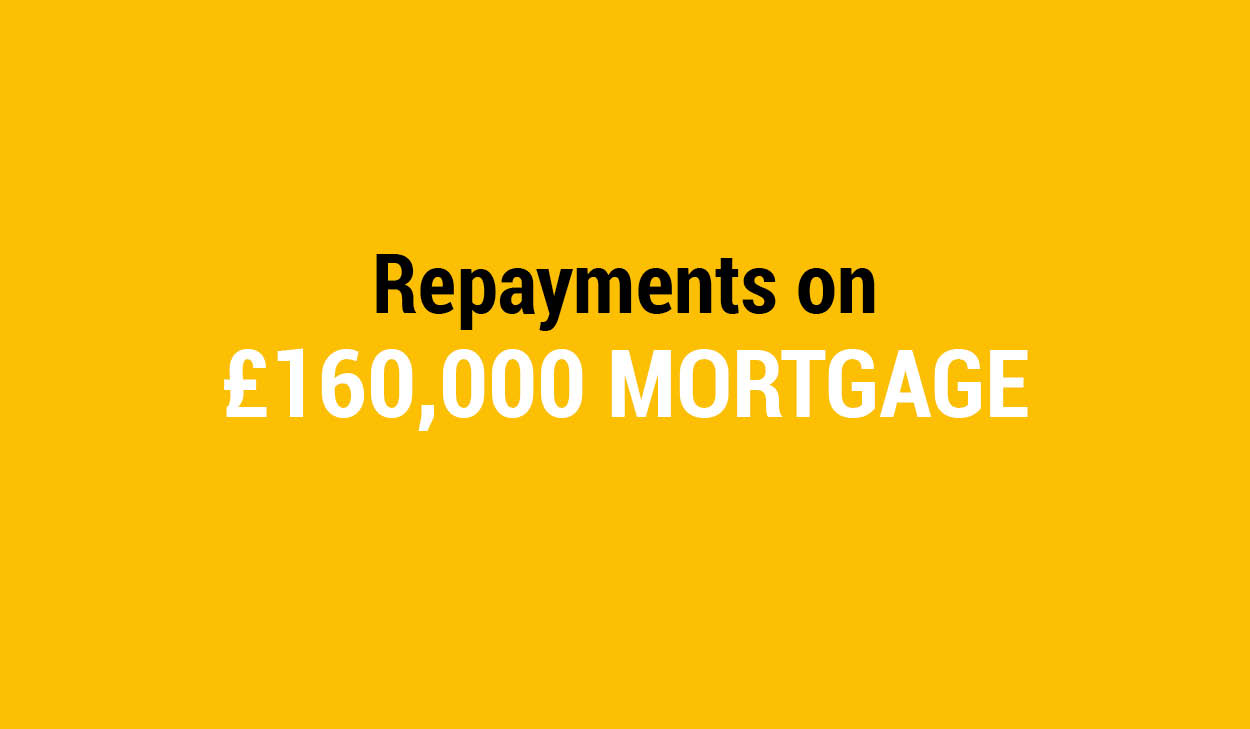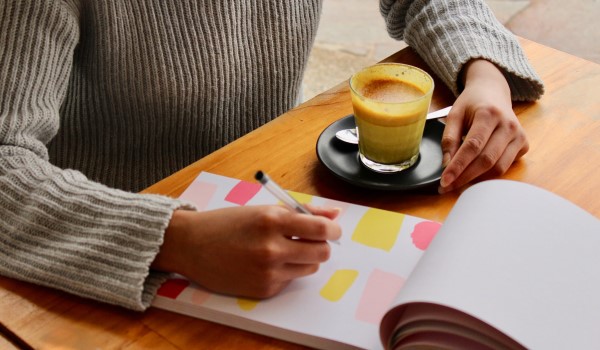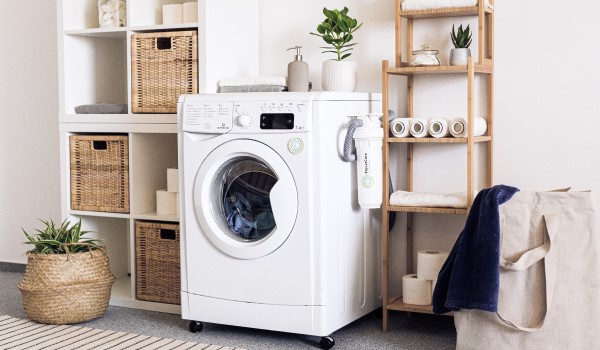If you’re wondering what factors will affect the repayments on a £160,000 mortgage, we’re here to help. Repayments will differ from person to person based on the length of the mortgage you go for, the interest you’ve got on your product and of course, the all-important deposit.
£160,000 mortgage repayments
Take a look at the guideline monthly payments on the table below for £160,000 mortgages that we’ve put together for you based on interest rates and terms. These figures should only be treated as a guide and not mortgage advice. These figures are all based on a repayment mortgage, not an interest only mortgage and calculated with the Money Helper mortgage calculator using a 10% deposit of £16,000.
| Term / Interest Rate | 1% | 2% | 3% | 4% | 5% |
| 10 years | £1,261.50 | £1,324.99 | £1,390.47 | £1,457.93 | £1,527.34 |
| 15 years | £861.83 | £926.65 | £994.44 | £1,065.15 | £1,138.74 |
| 20 years | £662.25 | £728.47 | £798.62 | £872.61 | £950.34 |
| 25 years | £542.70 | £610.35 | £682.86 | £760.09 | £841.81 |
| 30 years | £463.13 | £532.25 | £607.11 | £687.48 | £773.02 |
| 35 years | £406.49 | £477.02 | £554.18 | £637.60 | £726.75 |
Your home may be repossessed if you do not keep up repayments on your mortgage.
How much deposit do I need for a £160,000 mortgage?
- Lenders generally offer mortgages to people who can provide a minimum deposit of 5-10%.
- 5% would equate to £8,000 for a £160,000 mortgage.
- Other lenders might prefer a 15% deposit which would be £24,000, it all depends on their individual lending requirements but having a bigger deposit will mean that you’re able to access a wider choice of products.
Offering a higher deposit decreases your loan-to-value ratio (the percentage of the property you’ll own), giving you more flexibility with mortgage deals. Other things will affect your eligibility for a mortgage, including your credit report or employment history, your mortgage adviser will ask about these and include them in their search whilst finding your deal.
Can I afford a £160,000 mortgage?
Your ability to afford a £160,000 mortgage will depend on the repayments from the deal you’re offered by a lender. The deal will be based on the affordability check that they’ve done on your circumstances.
- They won’t offer you a mortgage deal if they don't think that you’ll be able to afford the monthly repayments.
- Lenders will look at a few different factors, including the initial deposit and your monthly salary.
- You must be able to prove that you can pay off the monthly repayments each month, so you’ll need at least three months of payslips, and bank statements.
- The likelihood of you getting a mortgage also depends on your credit history. If you have other outstanding credit, such as credit cards, store cards, loans, car leases, or a history of late payments or debts you might be offered less options for your mortgage deal as you’re not seen as a safe bet.
A good place to start is by calculating your monthly salary, take into account any other regular outgoings that you have and comparing this to the monthly payments, bearing in mind mortgage terms and interest rates. We’ve got a downloadable budget planner which can be helpful when writing everything down.
FAQs
Does being self-employed affect getting a £160,000 mortgage?
Although £160,000 isn’t the biggest mortgage in the world, it’s still a substantial amount for lenders to pay out, so they’ll need proof that you can pay it back. Usually, this is agreed easily when they can see proof of PAYE employment, but that doesn’t mean that you won’t be able to get a mortgage if you’re self-employed.
Understandably salary is one of the biggest determiners for your mortgage eligibility. If you’re self-employed and cannot demonstrate that you earn enough annually to cover your repayments, you may struggle to be accepted for a mortgage, but if you’ve got clear evidence that you can – it shouldn’t be a problem. Mortgage advisers can help you understand what documents you need before applying for your mortgage as a self-employed person.
You’ll need to show your lender the following documents and proof:
- Between one to three years of accounts to prove you have sufficient profit and income from your business.
- Proof of your deposit.
- Whether you've sent your Self-Assessment tax return to HMRC for the past 4 years Tax Overviews or a SA302.
- Details of upcoming projects or retained accounts.
What do I need to earn to pay for a £160,000 mortgage?
Typically, lenders are willing to offer three or more times your household’s yearly income, sometimes up to four, but this could be reduced if you have other outstanding debts and dependents. However, the experts would advise to put down a higher deposit with a mortgage that’s on the smaller side, like £160,000 as it’ll increase your loan-to-value ratio and may give you more choice and more flexible mortgage deals.
Can you get £160,000 buy to let mortgages?
Yes, £160,000 buy to let mortgages are available but they’re usually subject to higher deposits and many buy to let mortgages are interest-only and come with their own specific terms like you’ll usually have to already own another property. So, you can apply for this type of mortgage at £160,000, there may be more costs in the short term, plus longer-term higher interest rates.
Can you get £160,000 interest-only mortgages?
Yes, as previously mentioned many buy to let mortgages are usually interest only and you can get interest only residential mortgages from some providers. But remember these key things about interest-only mortgages. Of course, the lender will ask to see evidence that you’re able to repay this loan such as your affordability.
- An interest-only mortgage requires you to pay off the value of your loan once the term of interest payments has come to an end.
- Over the term of the mortgage, you only repay the interest of the loan.
- No capital is repaid unless you make overpayments.
- You’ll be required to pay off the balance on expiry of the term.
- You could use any saved income from rent payments to cover the final sum at the end of the term.









